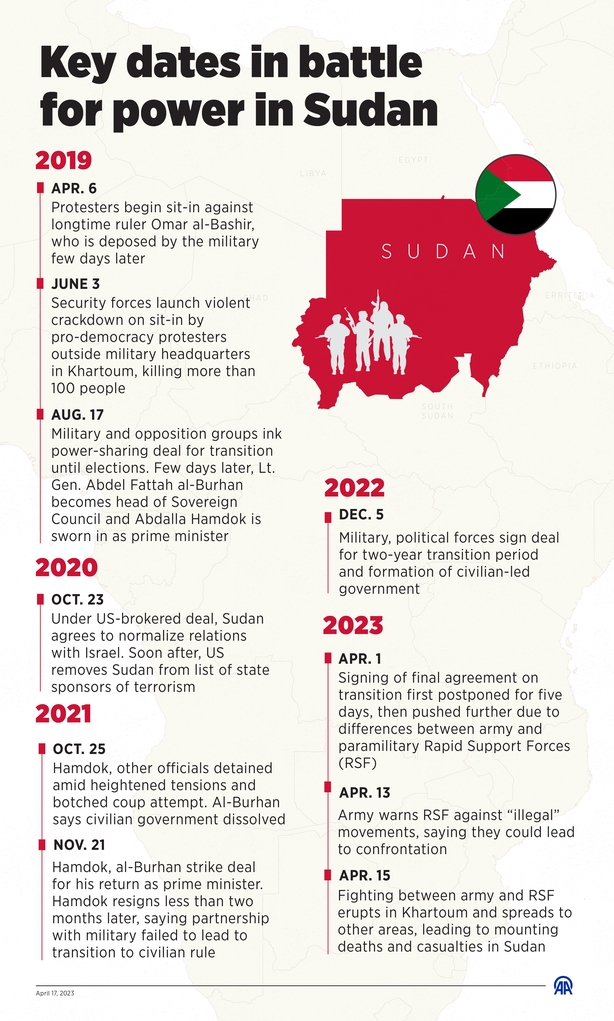Hundreds of diplomats and foreign nationals have been fleeing heavy fighting in Sudan.
There have been many frantic evacuations from the chaos-torn country, where violence has entered its second week.
More than 1,000 EU citizens have left - 50 of them are Irish citizens and their family members.
But with so many foreign officials leaving Sudan, questions are being raised over what effect this will have on the future of the country.
While duty of care and safety is of the upmost importance for diplomatic staff and NGOs, the significant withdrawal may hamper any prospect of a truce in the country.
"It makes it extremely difficult," Dr Edward Burke from UCD told RTÉ News.
The lecturer of History of War said that even though the United Nations will maintain a presence in the country, the lack of Europeans on the ground "weakens the support for UN mediation".
Since violence erupted, mediators from the UN, the African Union, regional IGAD bloc and Western and Gulf capitals have been attempting to bring both sides in this conflict to the negotiating table.
So far, efforts have been in vain. The European Union is making efforts to stop the war.
EU Foreign Policy Chief Josep Borrell said he has been in contact with both sides to end the conflict.
However, a deteriorating European presence in Sudan may create a vacuum.
"In terms of filling the void, we already know that some of the most capable actors in Sudan ... such as the UAE, Qatar ... they're seen as favouring one side, so they've been putting a lot of resources into the country. They've been sponsoring some factions in the region as well," he said.
"So, the danger is that once you take that European embassy presence out that you become increasingly reliant upon some of these regional actors and they're far from neutral in this conflict," he added.
Kenya's foreign minister said it is not pulling its diplomats out of Sudan because it wants a presence as negotiations toward a peaceful solution continue.
The conflict has pitted soldiers loyal to General Abdel Fattal al-Burhan, the head of the Sudanese army, against the paramilitary Rapid Support Forces led by General Mogamed Hamdan Dagalo.
Both had joined forces following the fall of dictator Omar al-Bashir in 2019, however, they have now turned guns on each other in an attempt to seize control.
With many failed ceasefires in recent days, there is no end in sight to the violence.








